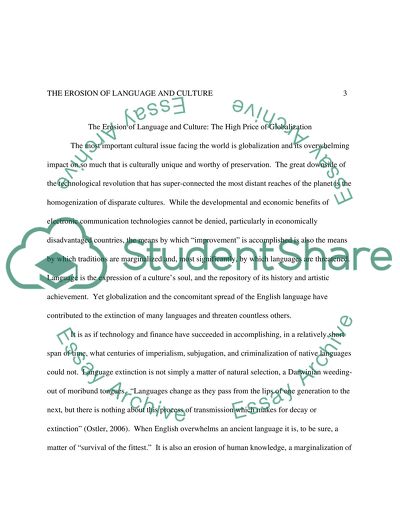Cite this document
(“The Erosion of Language and Culture Essay Example | Topics and Well Written Essays - 1500 words”, n.d.)
Retrieved de https://studentshare.org/anthropology/1397959-final-paper
Retrieved de https://studentshare.org/anthropology/1397959-final-paper
(The Erosion of Language and Culture Essay Example | Topics and Well Written Essays - 1500 Words)
https://studentshare.org/anthropology/1397959-final-paper.
https://studentshare.org/anthropology/1397959-final-paper.
“The Erosion of Language and Culture Essay Example | Topics and Well Written Essays - 1500 Words”, n.d. https://studentshare.org/anthropology/1397959-final-paper.


